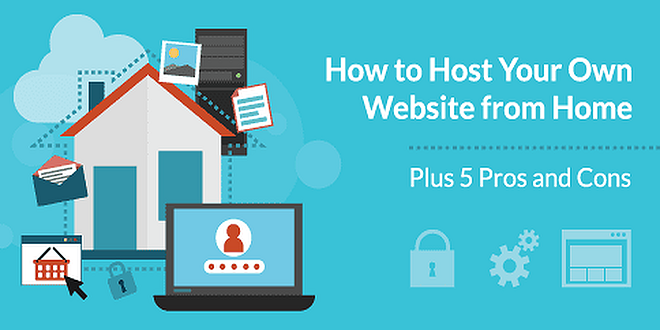Hosting – your website’s home on the internet

The other bit of housekeeping you need to take care of before your site goes live is hosting. Your finished site will consist of files, applications and possibly a database, all of which sit on a computer that is permanently connected to the internet. This computer is your web server, and will be running special software that will accept requests from users’ web browsers and deliver your web pages by return. It’s a bit more complicated, but basically that is what it boils down to.
Different types of hosting
There are basically three different types of hosting offered by web hosting companies – all of which are perfectly acceptable for your business website. Which option you choose will depend largely on your budget, how busy you anticipate your website will be (in terms of visitor traffic), and the amount of control you want over the configuration of the server.
A word of warning here: avoid ‘free’ hosting accounts. While they may be tempting for a small business site to begin with, they tend to be unreliable, often serve up annoying ads at the top of your site, don’t offer the flexibility or functionality of a paid hosting account, may not support the use of your own domain name, offer limited (if any) support, and present a greater risk that you will be sharing your server with some less than desirable neighbours – which can hurt your search engine rankings.
Shared hosting accounts
With shared hosting you are essentially renting space on a powerful server where your website(s) will sit alongside a number of other websites. Each hosting account has its own, secure virtual space on the server where you can upload your site’s files. A dedicated control panel for account administration offers some degree of control over server configuration and usually provides access to a suite of additional software and tools to help you (or your webmaster) manage your website(s). All of the websites on a server typically share system resources such as CPU, RAM, etc.
Virtual dedicated hosting
With virtual dedicated hosting a single server is ‘split’ into a number of virtual servers. Each user feels like they’re on their own dedicated computer, when in fact they’re sharing the resources of the same physical machine. The users will typically have complete administrative control over their own virtual space. This is also known as a virtual private server (VPS).
Dedicated hosting
Dedicated hosting solutions provide a dedicated, high-powered server for your website(s), and your website(s) alone. You don’t share space or system resources with anybody else – which means you don’t share the cost either… making dedicated hosting comparatively expensive.
Dedicated servers offer much more power and flexibility, because changes made to the server affect only your website(s). That means that you (or your webmaster/technical team) have complete control over server configuration, security, software and settings. They also typically offer much more capacity in terms of space and bandwidth than shared hosting – making them suitable for high-traffic sites.
Server co-location
Co-location is essentially the same as dedicated hosting, except that instead of the hosting company providing a preconfigured dedicated server for your website, you buy and configure your own server, which is then hosted at their dedicated hosting facility. This offers perhaps the ultimate in flexibility, because you have complete control not only over the software and setting on the server, but also over the hardware specification, operating system, software, security… everything. Co-location is essentially the same as hosting your own server in your own office – except that your server is plugged in to a rack in a dedicated hosting facility with all of the bells and whistles you’d expect.
Last word
That said, cloud-based hosting is really gaining traction in the marketplace, and increasing numbers of hosting providers are now offering a cloud-based ‘pay for what you use’ option as part of their portfolio. As always, you need to weigh the merits of what is on offer and decide what works best for your business.
For more information please visit: buy a proxy





